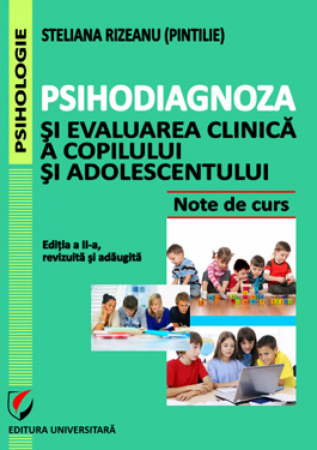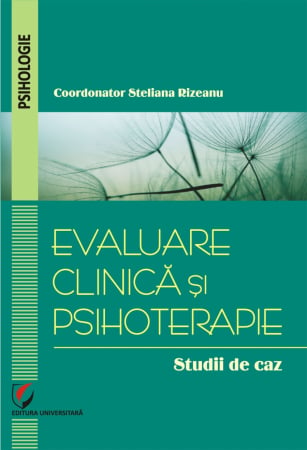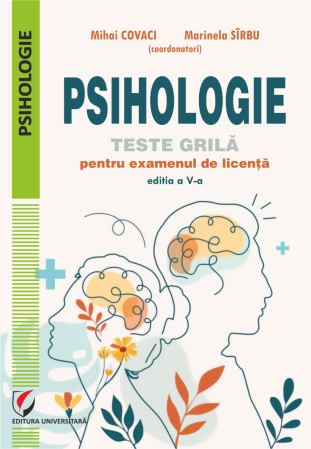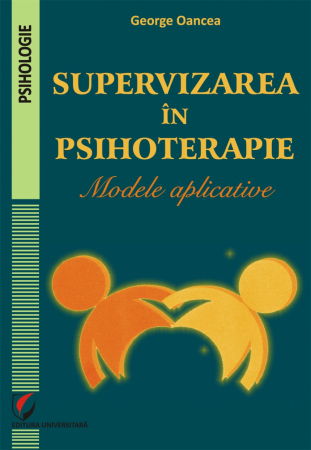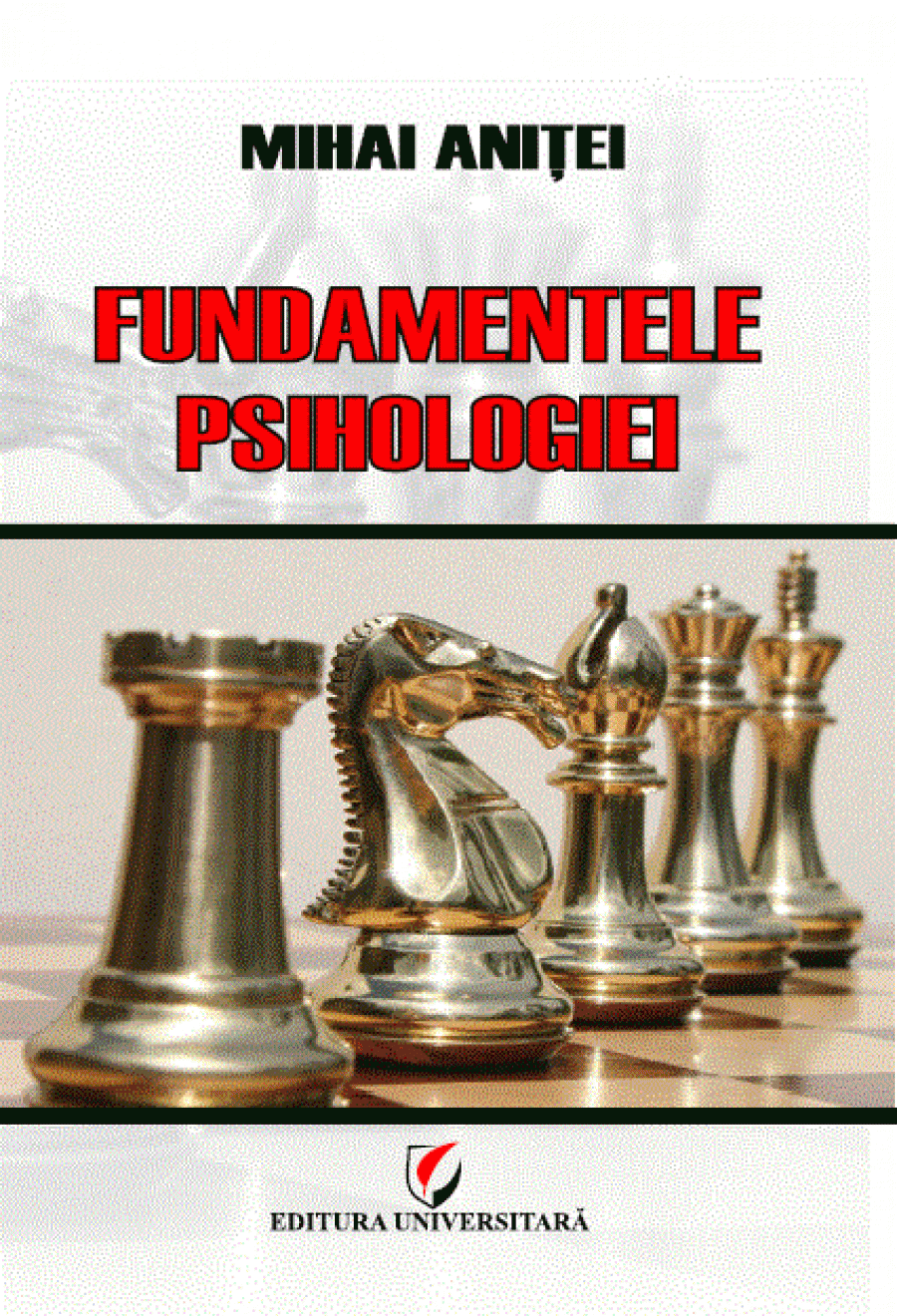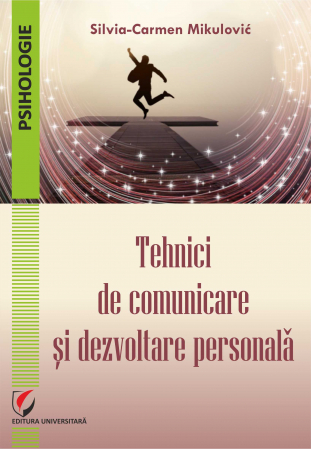Manuscript proposals: [email protected] / 0745 204 115 //// Tracking orders Individuals / Sales: 0745 200 357 / Orders Legal entities: 0721 722 783
ISBN: 978-606-28-0446-6
DOI: 10.5682/9786062804466
Publisher year: 2016
Edition: Revizuita
Pages: 200
Publisher: Editura Universitară
Author: Alexandru Mihalcea, Margareta Dincă
Product Code:
9786062804466
Do you need help?
0745 200 357
- Download (1)
- Authors
- Content
- Reviews (0)
-
Metode de cercetare in psihologie
Download
MARGARETA DINCA
ALEXANDRU MIHALCEA
ALEXANDRU MIHALCEA
Chapter 1 OBJECTIVITY CRITERIA IN THE SOCIO-HUMAN SCIENCES / 9
1.1 Definitions / 9
1.2 Principles of scientific research and the concept of methodology / 10
1.2.1 Principles of scientific research / 10
1.2.2 Indicators and descriptors specific to a scientific approach / 10
1.2.3 Specific descriptors of sciences / 12
1.2.4 Paradigm, methodology, method, technique / 14
1.3 Principles specific to quantitative and qualitative research in the socio-human sciences / 15
1.3.1 Quantitative research / 16
1.3.2 Qualitative research / 16
1.3.3 Basic principles of qualitative methodology / 17
1.4 Fields of activity in psychology (according to the Association of American Psychologists, APA) / 18
1.5 Scientifically validated psychological practice / 19
1.5.1 Criteria used for the evaluation of psychological instruments from the perspective of EBP / 19
Chapter 2 ETHICAL RULES, STRUCTURE OF THE RESEARCH REPORT / 22
2.1 Ethical norms in research with human participants / 22
2.2 Ethical norms in animal behavior research / 23
2.3 Ethical standards specific to the publication of the research report / 24
2.4 Ethical standards specific to qualitative research / 25
2.5 Structure of the research report / 26
Chapter 3 IDENTIFICATION OF RESEARCH, QUANTITATIVE AND QUALITATIVE PROBLEMS IN SOCIO-HUMAN RESEARCH / 30
3.1 Identifying the research problem and the criteria for choosing the methods / 30
3.2 Criteria for choosing methods and type of design - quantitative and qualitative in socio-human research / 32
3.2.1 Quantitative research, characteristics and stages / 33
3.2.2 Qualitative research, characteristics and stages / 35
Chapter 4 GENERATION AND FORMULATION OF HYPOTHESES / 41
4.1 Generation and formulation of hypotheses / 42
4.2 Stages of hypothesis formulation / 44
4.3 Formulation of statistical hypotheses / 46
Chapter 5 OPERATIONALIZATION OF CONCEPTS, SAMPLING / 50
5.1 Operationalization of concepts / 50
5.2 Sampling / 53
5.2.1 Sampling techniques / 53
5.2.2 Types of sampling / 55
Chapter 6 RESEARCH METHODS AND MODELS / 59
6.1 Research methods and designs / 59
6.1.1 Descriptive designs / 62
6.1.2 Experimental designs / 63
Chapter 7 EXPERIMENTAL DESIGN / 67
7.1 Types of experimental design: unifactorial and factorial design / 69
7.2 Types of experimental design: intergroup and intragroup design / 70
7.3 Hidden / confused variables in experimental design / 72
7.4 Types of randomization / 73
7.5 Quasi-experimental design / 74
Chapter 8 DESCRIPTIVE METHODS I / 76
8.1 Observation method / 76
8.1.1 Ways to prevent errors / 80
8.2 Test method. Technical standards used in the adaptation of educational and psychological tests / 85
Chapter 9 DESCRIPTIVE METHODS II / 89
9.1 Survey / 89
9.2 Questionnaire method / 90
9.2.1 Stages of the construction of the questionnaire / 95
9.3 Interview method / 98
9.3.1 Types of interview / 99
Chapter 10 INDIRECT OR ALTERNATIVE MEASUREMENTS OF HUMAN BEHAVIOR / 106
10.1 Analysis and interpretation of traces and material documents / 106
10.1.1 Types of traces and material documents / 107
10.2 Analysis of archives / 108
10.2.1 Types of archives / 109
Chapter 11 RESEARCH ON A SINGLE SUBJECT / 114
11.1 Case study / 114
11.2 Case analysis / 116
11.3 Biographical method / 119
Chapter 12 QUALITATIVE RESEARCH METHODS I / 124
12.1 Qualitative research, nominal group technique / 124
12.2 Validity in qualitative research, validation technique by triangulation / 126
Chapter 13 QUALITATIVE RESEARCH METHODS II / 129
13.1 Participatory observation / 129
13.2 Monograph / 132
13.2.1 The approach of the monographic research / 134
Chapter 14 QUALITATIVE RESEARCH METHODS III / 136
14.1 Comprehensive interview / 136
14.1.1 Types of comprehensive interview / 136
14.1.2 The research approach in which the comprehensive interview is used / 138
Chapter 15 QUALITATIVE RESEARCH METHODS IV / 141
15.1 Focus group / 141
15.1.1 Definitions / 141
15.2 Similar methods and techniques for evaluating attitudes and opinions / 142
15.3 Rules for the composition and functioning of the focus group / 143
15.4 Advantages and limitations of the method / 146
Chapter 16 CONTENT ANALYSIS METHOD / 150
16.1 Quantitative content analysis / 150
16.1.1 Advantages and limitations of the method / 157
16.2 Qualitative content analysis / 158
16.2.1 Stages of qualitative content analysis / 159
Chapter 17 CRITICAL INCIDENT METHOD / 163
17.1 Critical incident method and its applications structural and phenomenological analysis, formal analogy, game analysis / 163
17.2 Other applications of the critical incident method: scale with behavioral anchors, critical path / 167
Chapter 18 ANALYSIS OF GROUP DYNAMICS PHENOMENA / 173
18.1 Sociomatricei method / 173
18.2 Communication networks / 175
18.3 Leading styles / 177
Chapter 19 RESEARCH ON MOTIVATION / 183
19.1 Studies on needs / 184
19.2 Studies on attitudes / 186
19.3 Studies on beliefs / 187
19.4 Marketing studies / 188
Chapter 20 Statistical data processing in psychology / 190
20.1 Introductory elements in applied statistics / 191
20.2 PSPP - general presentation / 192
20.3 Student T test for independent samples / 193
20.4 Student T test for paired samples / 195
20.5 Testing the difference between more than two media: Unifactorial ANOVA / 196
20.6 Pearson correlation / 197
20.7 Calculating the internal consistency of scales - Cronbach Alfa / 199
1.1 Definitions / 9
1.2 Principles of scientific research and the concept of methodology / 10
1.2.1 Principles of scientific research / 10
1.2.2 Indicators and descriptors specific to a scientific approach / 10
1.2.3 Specific descriptors of sciences / 12
1.2.4 Paradigm, methodology, method, technique / 14
1.3 Principles specific to quantitative and qualitative research in the socio-human sciences / 15
1.3.1 Quantitative research / 16
1.3.2 Qualitative research / 16
1.3.3 Basic principles of qualitative methodology / 17
1.4 Fields of activity in psychology (according to the Association of American Psychologists, APA) / 18
1.5 Scientifically validated psychological practice / 19
1.5.1 Criteria used for the evaluation of psychological instruments from the perspective of EBP / 19
Chapter 2 ETHICAL RULES, STRUCTURE OF THE RESEARCH REPORT / 22
2.1 Ethical norms in research with human participants / 22
2.2 Ethical norms in animal behavior research / 23
2.3 Ethical standards specific to the publication of the research report / 24
2.4 Ethical standards specific to qualitative research / 25
2.5 Structure of the research report / 26
Chapter 3 IDENTIFICATION OF RESEARCH, QUANTITATIVE AND QUALITATIVE PROBLEMS IN SOCIO-HUMAN RESEARCH / 30
3.1 Identifying the research problem and the criteria for choosing the methods / 30
3.2 Criteria for choosing methods and type of design - quantitative and qualitative in socio-human research / 32
3.2.1 Quantitative research, characteristics and stages / 33
3.2.2 Qualitative research, characteristics and stages / 35
Chapter 4 GENERATION AND FORMULATION OF HYPOTHESES / 41
4.1 Generation and formulation of hypotheses / 42
4.2 Stages of hypothesis formulation / 44
4.3 Formulation of statistical hypotheses / 46
Chapter 5 OPERATIONALIZATION OF CONCEPTS, SAMPLING / 50
5.1 Operationalization of concepts / 50
5.2 Sampling / 53
5.2.1 Sampling techniques / 53
5.2.2 Types of sampling / 55
Chapter 6 RESEARCH METHODS AND MODELS / 59
6.1 Research methods and designs / 59
6.1.1 Descriptive designs / 62
6.1.2 Experimental designs / 63
Chapter 7 EXPERIMENTAL DESIGN / 67
7.1 Types of experimental design: unifactorial and factorial design / 69
7.2 Types of experimental design: intergroup and intragroup design / 70
7.3 Hidden / confused variables in experimental design / 72
7.4 Types of randomization / 73
7.5 Quasi-experimental design / 74
Chapter 8 DESCRIPTIVE METHODS I / 76
8.1 Observation method / 76
8.1.1 Ways to prevent errors / 80
8.2 Test method. Technical standards used in the adaptation of educational and psychological tests / 85
Chapter 9 DESCRIPTIVE METHODS II / 89
9.1 Survey / 89
9.2 Questionnaire method / 90
9.2.1 Stages of the construction of the questionnaire / 95
9.3 Interview method / 98
9.3.1 Types of interview / 99
Chapter 10 INDIRECT OR ALTERNATIVE MEASUREMENTS OF HUMAN BEHAVIOR / 106
10.1 Analysis and interpretation of traces and material documents / 106
10.1.1 Types of traces and material documents / 107
10.2 Analysis of archives / 108
10.2.1 Types of archives / 109
Chapter 11 RESEARCH ON A SINGLE SUBJECT / 114
11.1 Case study / 114
11.2 Case analysis / 116
11.3 Biographical method / 119
Chapter 12 QUALITATIVE RESEARCH METHODS I / 124
12.1 Qualitative research, nominal group technique / 124
12.2 Validity in qualitative research, validation technique by triangulation / 126
Chapter 13 QUALITATIVE RESEARCH METHODS II / 129
13.1 Participatory observation / 129
13.2 Monograph / 132
13.2.1 The approach of the monographic research / 134
Chapter 14 QUALITATIVE RESEARCH METHODS III / 136
14.1 Comprehensive interview / 136
14.1.1 Types of comprehensive interview / 136
14.1.2 The research approach in which the comprehensive interview is used / 138
Chapter 15 QUALITATIVE RESEARCH METHODS IV / 141
15.1 Focus group / 141
15.1.1 Definitions / 141
15.2 Similar methods and techniques for evaluating attitudes and opinions / 142
15.3 Rules for the composition and functioning of the focus group / 143
15.4 Advantages and limitations of the method / 146
Chapter 16 CONTENT ANALYSIS METHOD / 150
16.1 Quantitative content analysis / 150
16.1.1 Advantages and limitations of the method / 157
16.2 Qualitative content analysis / 158
16.2.1 Stages of qualitative content analysis / 159
Chapter 17 CRITICAL INCIDENT METHOD / 163
17.1 Critical incident method and its applications structural and phenomenological analysis, formal analogy, game analysis / 163
17.2 Other applications of the critical incident method: scale with behavioral anchors, critical path / 167
Chapter 18 ANALYSIS OF GROUP DYNAMICS PHENOMENA / 173
18.1 Sociomatricei method / 173
18.2 Communication networks / 175
18.3 Leading styles / 177
Chapter 19 RESEARCH ON MOTIVATION / 183
19.1 Studies on needs / 184
19.2 Studies on attitudes / 186
19.3 Studies on beliefs / 187
19.4 Marketing studies / 188
Chapter 20 Statistical data processing in psychology / 190
20.1 Introductory elements in applied statistics / 191
20.2 PSPP - general presentation / 192
20.3 Student T test for independent samples / 193
20.4 Student T test for paired samples / 195
20.5 Testing the difference between more than two media: Unifactorial ANOVA / 196
20.6 Pearson correlation / 197
20.7 Calculating the internal consistency of scales - Cronbach Alfa / 199
If you want to express your opinion about this product you can add a review.
write a review

6359.png)
![Research methods in psychology [1] Research methods in psychology [1]](https://gomagcdn.ro/domains/editurauniversitara.ro/files/product/large/metode-de-cercetare-in-psihologie-589-947873.jpg)
